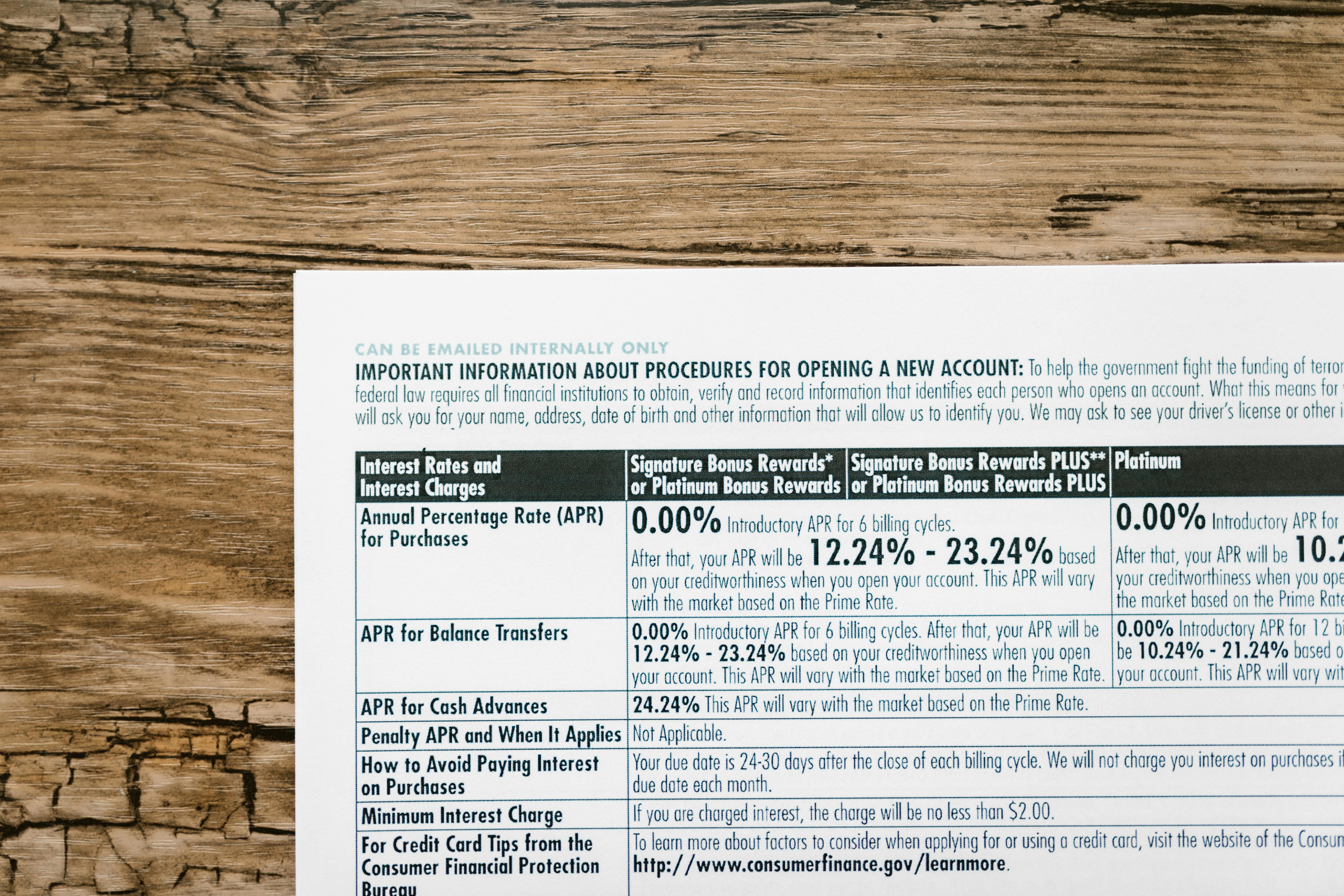
How to Avoid Banking Fees in 2025
Discover practical strategies to eliminate banking fees in 2025, from choosing fee-free accounts to avoiding overdrafts and ATM charges.
How to Avoid Banking Fees in 2025: Save Money on Your Accounts
In 2025, banking fees can erode your savings, with UK consumers losing £2.3 billion annually to charges like account maintenance (£5-£15/month) and overdrafts (£20-£40 each). Online banking offers low-cost options, but hidden fees persist—70% of account holders pay unexpected charges yearly. This guide provides actionable strategies to avoid common banking fees, from choosing the right account to leveraging digital tools, helping you save £50-£300/year while managing your finances smarter.
Why Banking Fees Matter
Fees for maintenance, ATM use, or overdrafts add up quickly. For example, £10/month in account fees costs £120/year, while two overdrafts at £30 each add £60. With 80% of UK adults using online banking, digital banks like Monzo and credit unions offer fee-free alternatives, but traditional banks like HSBC still charge for premium services. Avoiding fees preserves your savings and maximizes returns, especially with 2-3% inflation in 2025 reducing real money value.
Common Banking Fees to Watch For
Understanding fee types is the first step to avoiding them. Here are the most common charges in 2025:
| Fee Type | Typical Cost | Description |
|---|---|---|
| Monthly Maintenance | £5-£15 | Charged for account upkeep, often on premium accounts (e.g., Barclays Premier). |
| Overdraft | £20-£40 per instance | Fees for spending beyond your balance; 40% APR on unarranged overdrafts. |
| ATM Withdrawal | £1-£5 | Charged for using out-of-network or international ATMs. |
| Transaction Fees | £0.50-£3 | For specific transfers (e.g., international) or bill payments in-branch. |
| Minimum Balance | £5-£10 | Penalty for falling below required balance (e.g., £1,000). |
Strategies to Avoid Banking Fees
Use these practical tips to minimize or eliminate banking fees in 2025:
1. Choose Fee-Free Accounts
Digital banks like Chase UK and Starling offer accounts with no monthly maintenance or transaction fees—60% of users save £60-£180/year by switching. Credit unions like London Mutual charge £5-£10 to join but waive ongoing fees. Check platforms like MoneySuperMarket to compare fee-free options. Avoid premium accounts unless benefits (e.g., travel insurance) outweigh costs.
2. Maintain Minimum Balances
Some banks (e.g., Santander) waive maintenance fees if you keep a minimum balance, like £1,000. Set up alerts to monitor your balance via your bank’s app—70% of apps offer this. If you can’t maintain the minimum, switch to a no-minimum account like Monzo, which 40% of UK users prefer for flexibility.
3. Avoid Overdrafts
Overdrafts cost £20-£40 each, with unarranged ones hitting 40% APR. Enable low-balance alerts (e.g., £50 threshold) to avoid dipping below zero—60% of users prevent overdrafts this way. Link a savings account for automatic transfers or use a 0% overdraft buffer (e.g., Nationwide’s £50 buffer). Budgeting tools in apps like Revolut help 50% of users avoid overspending.
4. Use In-Network ATMs
Out-of-network ATM fees range from £1-£5, costing £12-£60/year for frequent users. Use your bank’s ATM locator (e.g., Lloyds’ app) to find free ATMs—90% of banks offer this. Digital banks like Starling provide fee-free international withdrawals, saving £20-£50/year for travelers. Withdraw larger amounts less often to minimize trips.
5. Opt for Online Transactions
In-branch or phone transactions cost £1-£5 each, while online transfers are free—95% of digital transactions save fees. Use your bank’s app for bill payments and transfers, adopted by 80% of UK adults. Schedule recurring payments to avoid late fees (£10-£30), which 30% of users face yearly.
6. Switch Banks for Bonuses
Banks like NatWest offer £100-£200 for switching to fee-free accounts, with 500,000 UK customers switching annually. Use the Current Account Switch Service (CASS) for a seamless 7-day process—99% of switches are hassle-free. Check eligibility on bank websites or Which? to ensure bonuses offset any fees.
7. Review Account Terms Regularly
Banks update fee schedules, with 20% introducing new charges in 2024. Check your bank’s website or app monthly for changes—70% of users miss hidden fees. Contact customer service (e.g., Barclays: 0345 734 5345) to negotiate waivers, successful for 30% of users. Compare alternatives on MoneySavingExpert if fees rise.
Costs of Avoiding Fees
Most strategies are free, but some tools have costs. Here’s a breakdown:
| Tool/Strategy | Cost | Provider/Example | Savings Potential |
|---|---|---|---|
| Fee-Free Bank Account | Free | Monzo, Starling | £60-£180/year |
| Budgeting App | Free-£50/year | Revolut, Yolt | £100-£500/year |
| Credit Union Membership | £5-£10 one-time | London Mutual | £50-£100/year |
| Switching Bonus | Free | NatWest, Santander | £100-£200 one-time |
UK Context in 2025
The UK’s 5% base rate and 2-3% inflation in 2025 make fee avoidance critical to preserve savings. FCA regulations cap overdraft rates at 40% APR, but banks still earn £2.3 billion from fees. Digital banks, with 4.9/5 app ratings, lead with zero-fee accounts, while 500 branch closures in 2024 push 90% of transactions online. Credit unions, serving 2 million members, offer low-fee alternatives but lack advanced apps. Comparing options is easier than ever with tools like MoneySuperMarket.
Final Thoughts on Avoiding Banking Fees
In 2025, avoiding banking fees can save £50-£300/year, with 70% of UK account holders facing avoidable charges. Switch to fee-free banks like Chase UK, use in-network ATMs, and enable alerts to dodge overdrafts—60% of users save £60-£180 this way. Budgeting apps and switching bonuses add £100-£500 in benefits. Regularly check terms and explore credit unions to keep costs low. With smart choices, you can keep more of your money where it belongs—in your pocket.